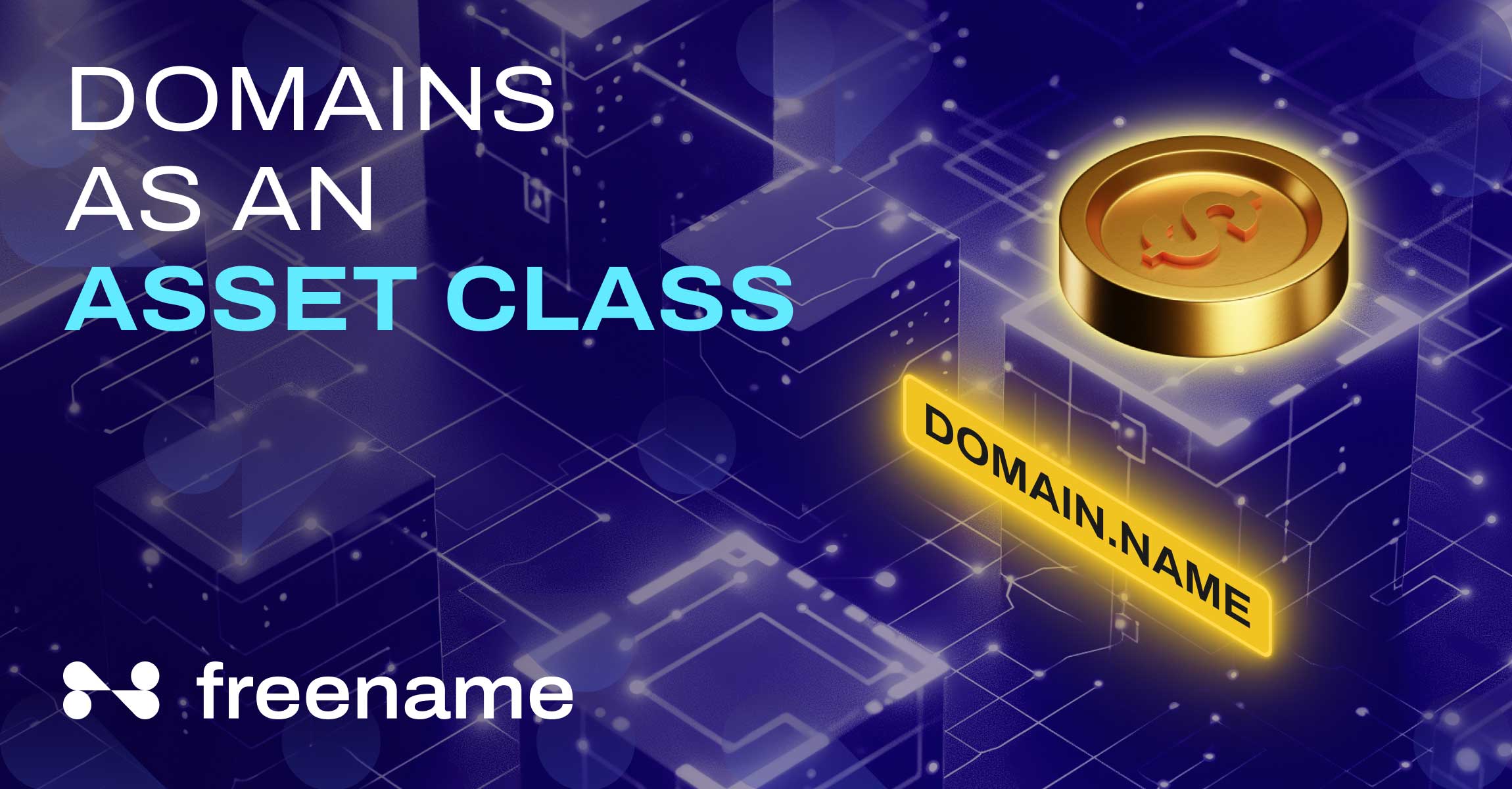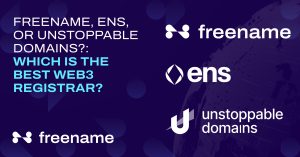How Digital Real Estate & Blockchain Are Transforming Domain Finance
The domain name has evolved from an easy way to find a person, business, or brand on the web into a powerful tool to make a statement online and a multibillion-dollar industry. A premium domain can enhance a company’s visibility, improve search rankings, and provide brand recognition, making it a valuable resource for anyone building on the web. But what makes a domain valuable, and how can” Digital Real Estate” empower businesses and entrepreneurs?
The First Digital Real Estate
In the early days of the internet, domains were primarily used for email, an immense step for modern communication that individuals today often take for granted. As the internet began to grow in use, companies began to use the digital asset as an easy way for their customers to find them online. This created immense value for the businesses that began doing business on the web, attracting millions of traffic and generating billions of dollars in revenue. As internet adoption expanded, businesses quickly recognized the potential of domains as vital tools for establishing their online presence.
Owning a domain name became essential for gaining credibility online allowing businesses to reach individuals on a global scale. As people realized the importance of a domain, investors began to purchase premium domains with the belief that over time, they would grow in value. Domains were considered by many to be the first digitally native asset and akin to scarce digital real estate. The early speculation on the value of domains paid off; as the internet grew, domain investors were rewarded handsomely. The secondary market for domains expanded rapidly, with high-value sales reaching millions of dollars, and domains became a multi-billion dollar industry.

But these instances of big domain sales happen few and far between. A large portion of the domain market suffers from a lack of liquidity, meaning that they can be difficult to sell quickly. This illiquidity stems from a couple of factors. First, domains are a niche asset class and unlike other established assets, there’s no clear-cut valuation model for domains. They are unique, one-of-one assets, each with its specific characteristics. This lack of fungibility made it challenging to price. Despite these attributes, the domain market began to grow year over year finding new ways to be traded on the web.
Blockchain and Domain Names
As internet adoption continued to grow, new technologies began to emerge with capabilities that only enhanced the utility of a domain. The emergence of blockchain tech and crypto payments has changed how people interact how people interact on the web. Domains can now be purchased and sold via cryptocurrency and can even be used as a wallet address to send crypto and other digital assets online with ease.
This shift has unlocked new markets, making domain trading faster, more transparent, and globally accessible. The creation of human- readable wallet addresses allows for enhanced security, leading to more transactions that users can trust is going to the right location. With the growing adoption of blockchain, more individuals are securing their digital identity and combining the capabilities of a digital wallet and a commercial web address.

The Benefits of Domain Finance
As domain names have grown in utility and value, blockchain technology promises to revolutionize how domains are traded. The tokenization of domains has enabled the digital asset to have the same capabilities as an NFT, providing faster, cheaper settlement. Another use case that is emerging is the use of domains with DeFi (Decentralized Finance). This means that a domain can now be used as collateral for loans or fractionalization.
Entrepreneurs andinvestors can leverage high-value domain names to secure funding without selling their digitally native assets outright. Additionally, fractionalization allows multiple investors to own shares of a premium domain, allowing access to valuable digital real estate that was once limited to only a handful of investors. This shift marks the beginning of domain finance, where domain premium domains become more liquid and strategically valuable assets.
Domain Finance is crucial for unlocking the true value of domain names. Traditionally, domains could only profit from selling domains, leasing, or creative finance, but domain finance promises to change this by providing new capabilities to the asset class. By using domains as collateral, owners can access liquidity without selling their assets, similar to real estate-backed loans today. This enables domain investors to participate in the digital economy while retaining ownership.
The Future of Domain Names
As technology advances, the use of domain names will only grow over time, transforming domains into on-chain assets with liquidity. More businesses and individuals are learning about the benefits of owning digital real estate and understanding how it can be used for transactions, decentralized identity, and financial applications. With millions of domains already registered, blockchain tech will enable the next wave of individuals on-chain by unlocking the value of a once-dormant asset class. The landscape of domains will only continue to evolve, introducing new use cases that will enhance the value of a domain and attract more interest, cementing its status as a strategic asset for anyone building on the web.








